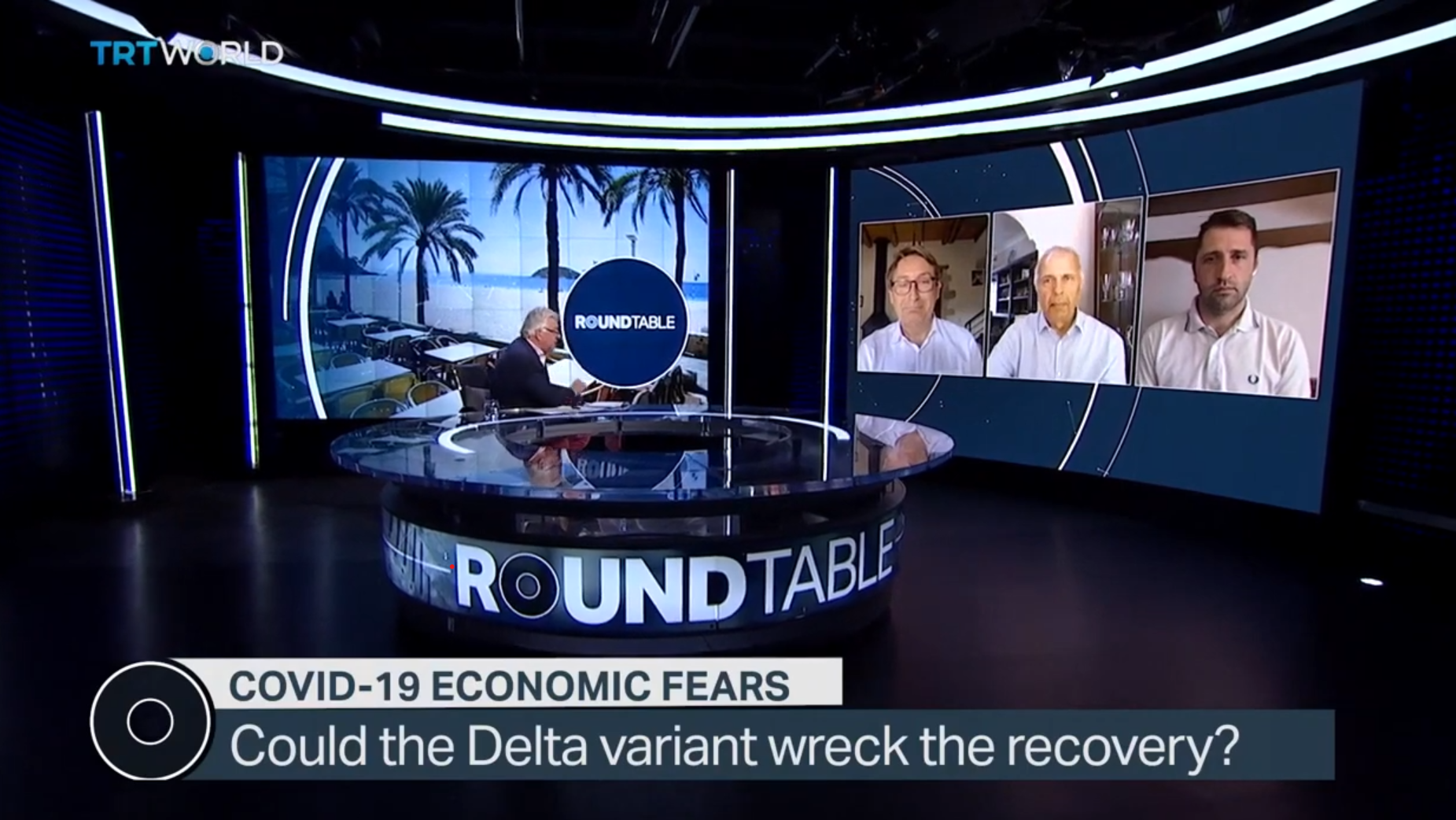In July 2021, The Bridge Tank’s President Joel Ruet, economist at the French National Centre for Scientific Research (CNRS), joined David Foster on Turkish television channel TRT World to discuss the impact of the COVID-19 pandemic on the economies of France and the EU.
Comparing the pandemic to previous crises, e.g. the oil shock of 1973 and the 2008 financial crisis, Mr Ruet contended that the French economy did manage to ride out the pandemic quite well, despite suffering -13% on its quarterly GDP growth rate (compared to -1% in 2008 and -2% in 1973). One of the differences with previous crises is that the pandemic did involve nowhere near the wealth destruction that the global economy suffered during the 2008 financial crisis, Joel Ruet argued.
He also gave credit to France for managing the pandemic well on a macro-economic level. The responses of both the French government and the EU were quite different from those of 2008, as they were much better coordinated, quicker and more extensive.
The measures France unrolled in 2020 to support economic activity during the pandemic accounted for €500 billions. These were divided between real expenditure (i.e. partial unemployment schemes; solidarity fund) and cash flow measures (e.g. deferral of social security contributions and tax payments at the height of the crisis). A second category of measures implemented by France is found in its €100 billion economic recovery plan for 2021-2022.
All these measures were effective in protecting French citizens, as household purchasing power remained the same between 2019 and 2020. In addition to that, the French economy created 41,000 jobs between April and June 2021 – 15% more than the quarterly average observed since 2009. With the majority of French citizens now vaccinated, the most likely scenario remains that of a strong recovery (i.e. 6% growth forecast according to French President Macron), with the European Commission itself expecting a 4.8% growth in the EU and the eurozone this year (forecast of 7 July).
As a conclusion, Joel Ruet also noted that the pandemic created an opportunity for an accelerated green transformation in the EU.

